- Learning time
- 60 minutes
- First play time
- 220 minutes
Time of Crisis
Designed by: Brad Johnson,Wray Ferrell
Time of Crisis takes place during a tumultuous period in the history of the Roman Empire, from 235 – 284 AD. Barbarian hordes were encroaching from Europe, Africa and the Middle East, and there were constant changes in power in Rome and the provinces. This period lasted for 50 years until the succession of Diocletian, in 284AD, which ushered in a new era of stability.
In the game, players represent important Roman families, seeking to secure their place in the history books through fighting back the barbarian hordes, beneficent rule of the provinces and ultimately becoming Emperor, if only for a year or two. Points are called legacy, and when a player achieves 60 legacy whilst being Emperor, the game will end. There’s also an event deck, and near the bottom of that stack is the Diocletian card. If that card is drawn, the game ends immediately. In either case, points are added according to who held power in Rome the longest, and the winner is declared.
On a players turn, actions are achieved through playing cards of three suits; Military (red), Senate (blue) and Populace (yellow), and then more cards are purchased, allowing players to do more and better things in later turns. Battle, and political control, are decided by dice-rolling, with the marvellous concept of ‘exploding sixes’ – sixes are an automatic hit and are also rerolled, allowing you to squeak a win in votes or battle on the slimmest of odds, if luck is on your side.
You can gain legacy by success in battle, and by becoming governor of the various provinces of the empire – but taking control of Italia and declaring yourself Emperor is the way to score big each turn. However, it also singles you out for the attentions of the other players, and this back and forth makes for a deep and interesting game. If you can’t handle the heat of Rome, you can always attempt to create a ‘Pretender’ empire elsewhere – this has the added benefit of sapping power and points from the legitimate Emperor, but it’s difficult to achieve.
Time of Crisis is published by GMT, a company known for their serious, and often very heavy war and conflict games. Although this rates as a 2 out of 9 on their complexity scale, it is, compared to a lot of modern board games, undeniably complex, with the 20 page rule book needing several close readings to catch all the subtleties. On the other hand, the mechanisms used in the game are those more closely associated with economic and resource management games as opposed to war games, so once you’ve fully ingested the rules there’s a rich, thematic and very fun game for those who are interested taking a spin as Emperor of Rome.
Joe says
I've played it a number of times now, and I adore ToC. The apparent complexity falls away after the first learning game, and the tussle between players really becomes the experience. GMT make excellent historical games, and this marries the theme with the mechanics exceptionally well. There's a logic to how everything fits together, and I love playing games with a rich historical theme - it makes me feel smart! The drawback is the length, I suppose - but then if you can find the time, the feeling of having played a long and satisfying game, with huge swings of fortune and hard-fought political shenanigans, is very appealing to me. It's the kind of game that needs 3 or 4 dedicated players to commit to a few regular games to really get the most out of; but if you can achieve that, it's a singularly excellent experience.
The guru's verdict

-
Take That!
Take That!
There's angry barbarians, direct conflict with the other players and political ousting - and dice can be cruel.
-
Fidget Factor!
Fidget Factor!
Turns can be fairly long, but while others are playing you'll be interested in what they're doing, and thinking about how the changing situation will affect what you do on your turn.
-
Brain Burn!
Brain Burn!
A lot of rules. Not unintuitive, but lots to get your head round. Expect a first game to be about getting to grips with the rules - after that, you'll be flying.
-
Again Again!
Again Again!
Players actions may be limited and similar for the first turn or two, but after that the game opens out in to a real sandbox experience, with different strategies to pursue, and it can feel quite different each time. So there's plenty of longevity, if you can set aside a regular 2-3hr play date.

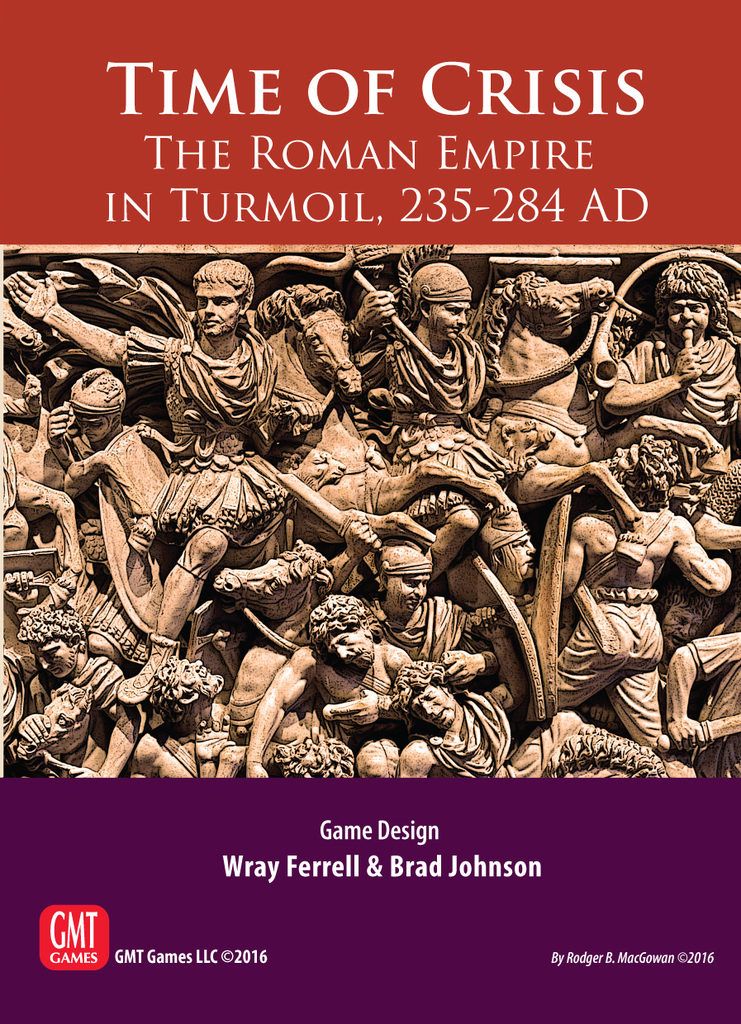
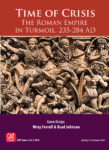
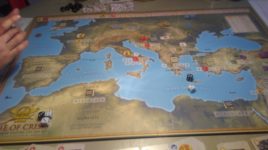
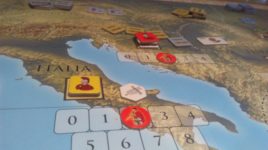
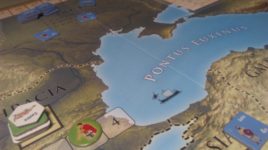
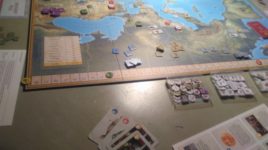
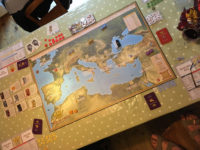


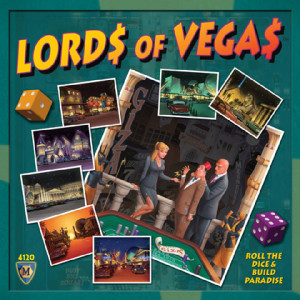
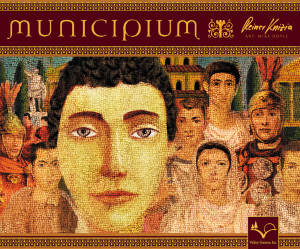
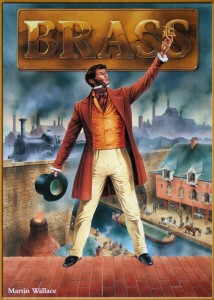
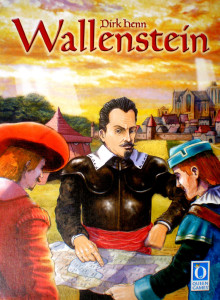
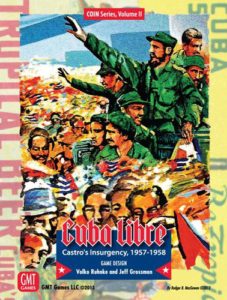
Sam says
This is an excellently designed game, with clever mechanics that make more thematic sense than lots of simpler games I enjoy. It was also an object lesson for me in not learning and playing a long and involved game of politicking and combat on an evening when I was very tired - my first play almost put me off forever! But Joe's love of it convinced me to play again and my subsequent visits have been much more enjoyable - like any game of real weight, the first play is kind of exploratory, and after that you find yourself able to plan ahead, and begin to see the wheels turning. So it's not a family game, and the box pretty much gives that away with the absence of shiny-teethed parents joshing with their children. But for those who want to sit down something really chewy and highly interactive, Time of Crisis comes with some very big ticks.